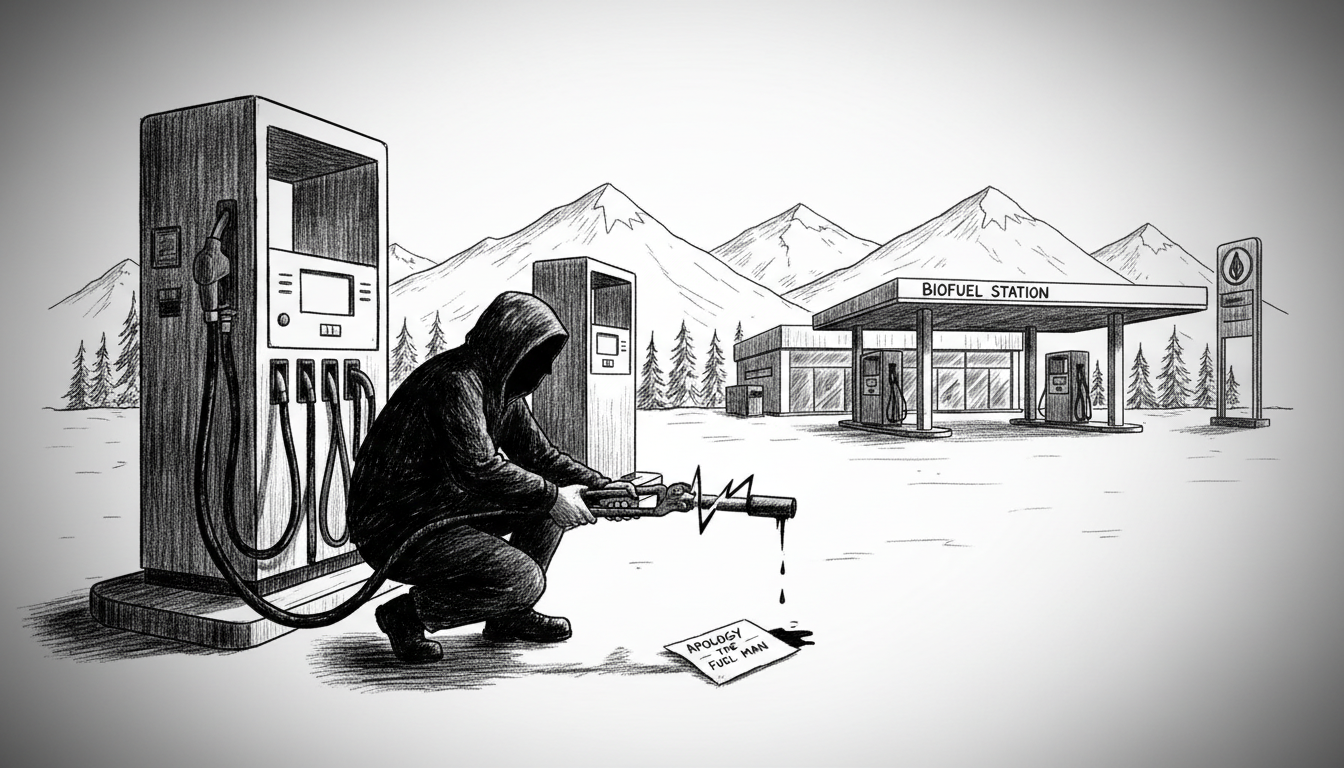A man faces criminal charges after cutting fuel hoses at multiple gas stations in Western Sweden. The suspect allegedly used plastic pipe cutters to damage pumping equipment during two evenings in late June.
Prosecutors have filed charges for 13 counts of vandalism, two counts of endangering others, and one count of causing bodily injury. The man admitted to the vandalism during police interviews but denied the other allegations.
In a surprising twist, the suspect left handwritten apology letters signed "The Fuel Man" at some locations. He told investigators he targeted the stations to protest increased ethanol content in gasoline. He believed the biofuel mandate would damage older vehicles.
Sweden's reduction obligation policy requires fuel companies to mix renewable fuels like ethanol with gasoline and diesel. This environmental measure aims to reduce transportation emissions. The policy has faced criticism from some motorists concerned about vehicle compatibility.
This case highlights the tension between climate policies and public acceptance. While most Swedes support environmental measures, some individuals resort to extreme actions when they feel policies negatively affect them.
The fuel hose vandalism caused significant disruptions for motorists across Western Sweden. Several stations had to close temporarily for repairs. The incidents occurred during peak summer travel season, creating additional inconvenience for vacationers.
Police identified the suspect through purchase records and surveillance footage. The 25-year-old man bought the pipe cutters at a hardware store before beginning his two-night campaign.
The case raises questions about appropriate forms of protest in a democratic society. While citizens have legitimate concerns about policy changes, destructive actions create safety risks and property damage. The suspect's apology letters suggest he recognized the problematic nature of his methods.
Swedish authorities take vandalism of critical infrastructure seriously. The charges reflect the potential danger of damaging fuel equipment. Gasoline spills could cause environmental contamination or create fire hazards.
The court will now determine the man's guilt and potential sentence. Swedish law typically imposes fines or imprisonment for serious vandalism cases. The court may also consider the suspect's apparent remorse when deciding the outcome.
This incident follows similar protests against environmental policies in other Nordic countries. Some citizens feel increasingly frustrated by regulations that affect their daily lives and expenses. The challenge for governments remains balancing climate goals with public acceptance.
What consequences will the suspect face if convicted? Swedish courts typically consider both the damage caused and the defendant's intentions. The apology letters and partial confession might influence the final judgment.
The case continues through the Swedish legal system as authorities work to repair the damaged equipment. Motorists in Western Sweden can expect normal service to resume once repairs complete.

